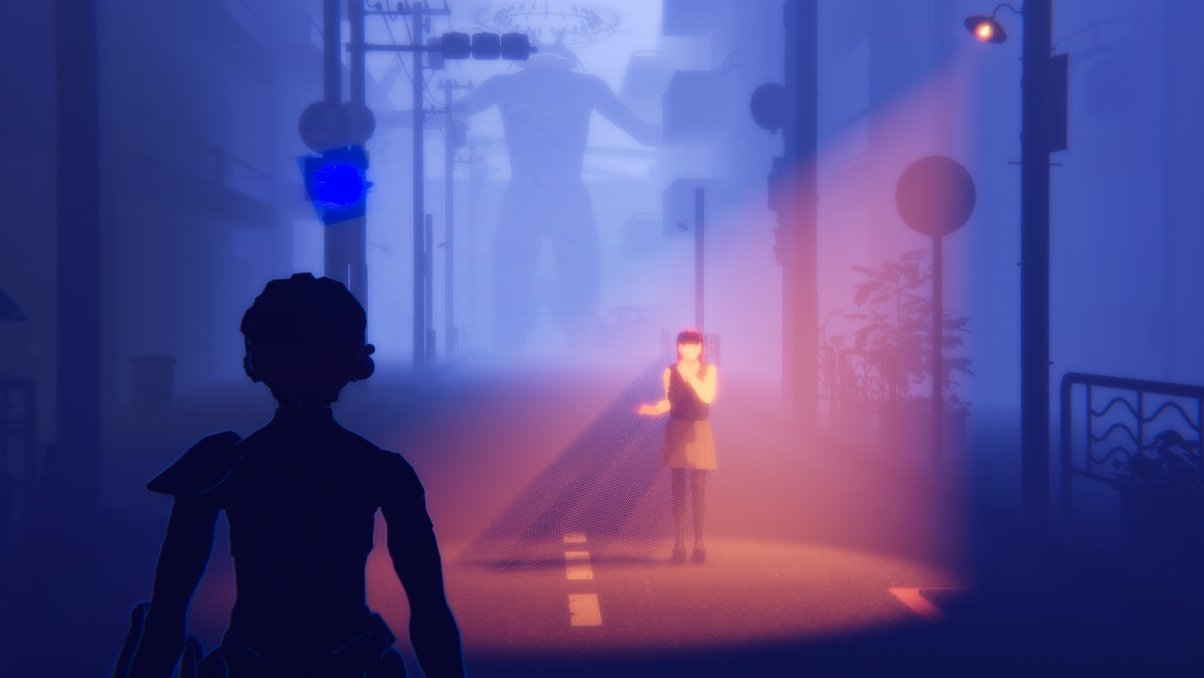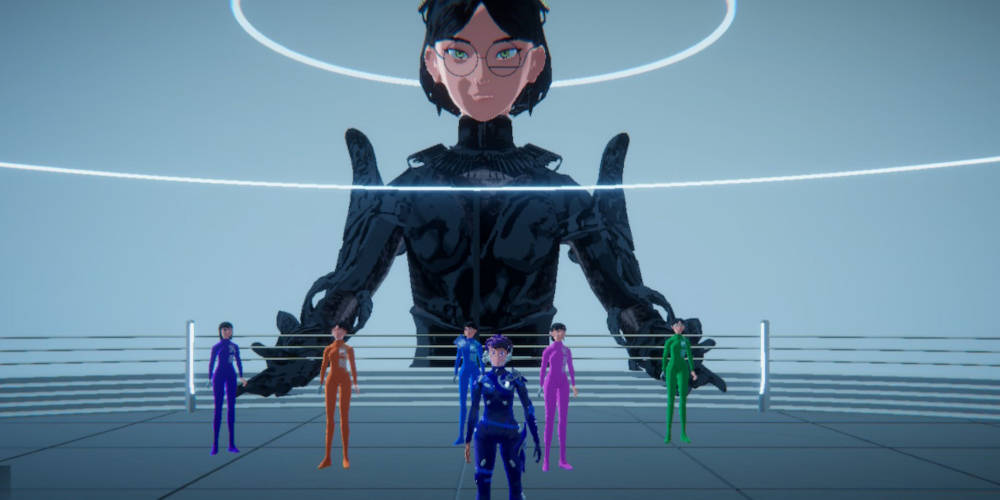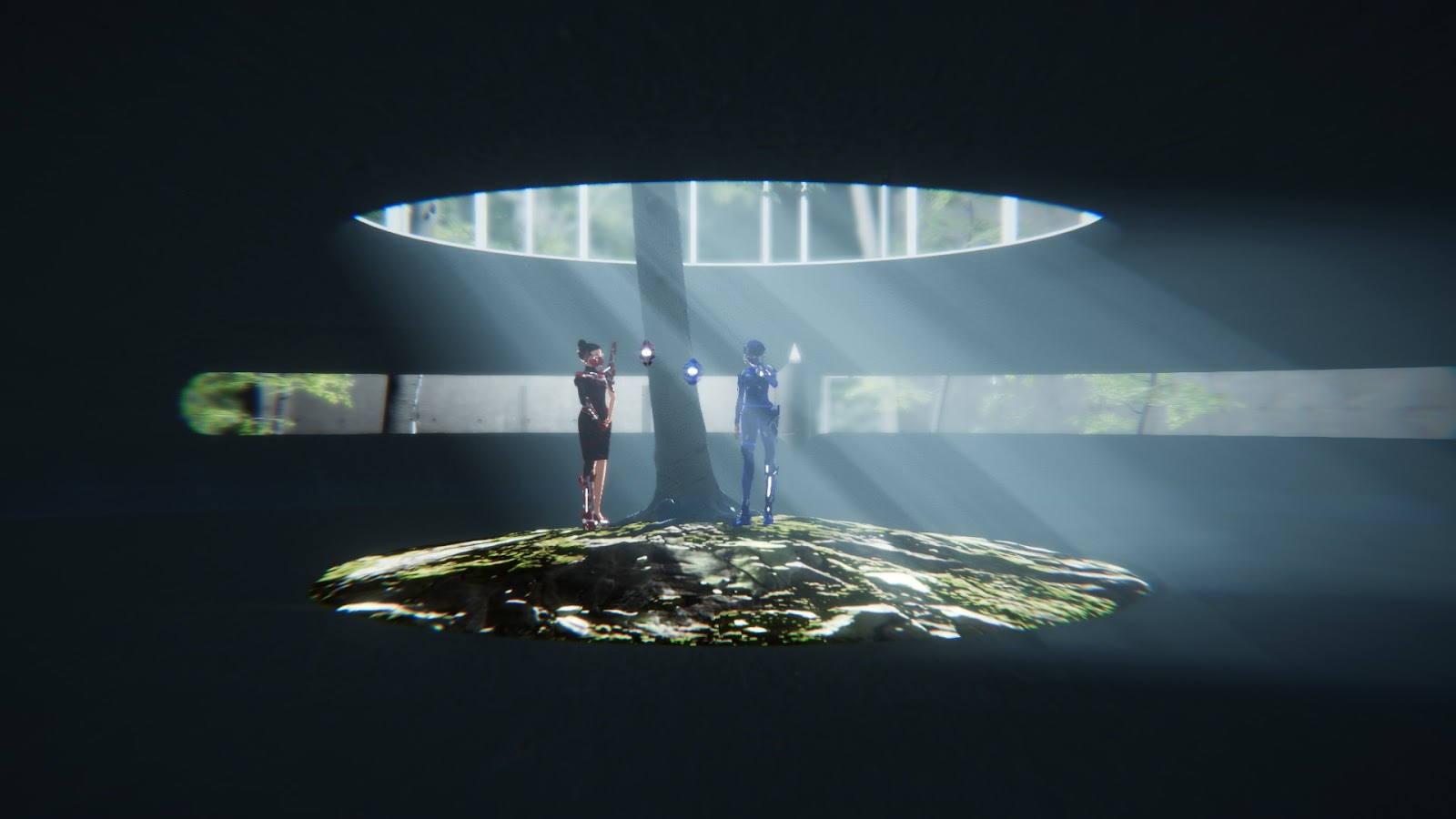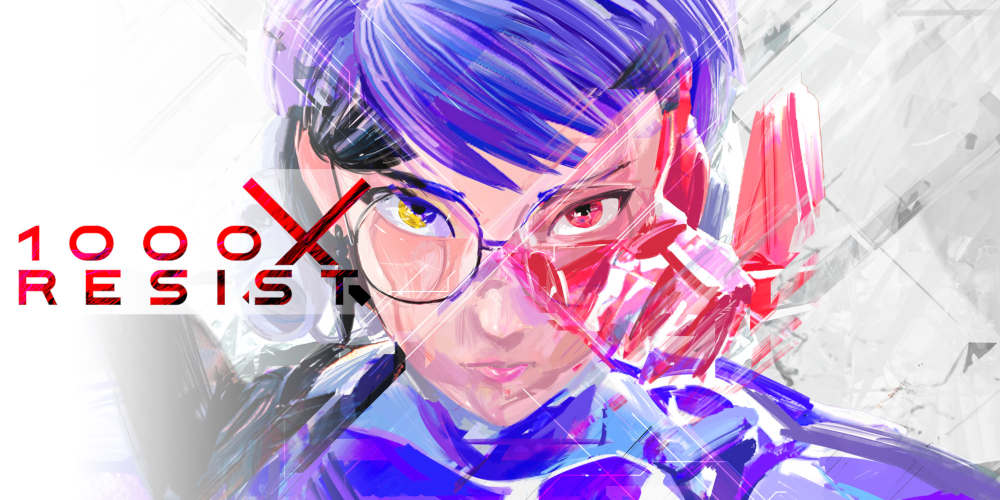Last March, I was contacted by one Remy Siu who was looking for someone to translate a weirdly-named game, 1000xRESIST, into French, Korean and Brazilian Portuguese. We talked it through, rates, deadlines, everything, I then invoked the Warlocs, my video game translation collective, and everything slowly got into gear.
The developers had sent us Steam keys to get a feel for the game and so although I had some time before having to start working on it, I thought I would take a quick look at it. I started it, clicked through a very sober menu, and was then faced with an introductory scene featuring a minimal 3D setting and anime-styled character: two women in high heels, the one killing the other in a purportedly tragic scene for which I had not the slightest bit of context. Stupid prejudice got a hold of me, and I could almost feel the words “anime nonsense” on my lips, and…
… how wrong was I. 1000xRESIST is probably the best written and staged game I ever played.
Personal and political
Given this science-fiction story’s plot is very dense, non-linear, and one of the game’s strengths, I will not try and sum it up and will limit myself to the starting situation. You play as Watcher, one of the sisters serving the ALLMOTHER, a benevolent and godlike figure reigning over the Orchard, futuristic haven of a female community in which everyone has a function and a colour. Everything is very ritualised in this autarkic society, besieged by the mysterious Occupants, but everything is alright. Until one day, one of the sisters strays from the path, and then the world never is the same again.
I’ll stop here. As you’ll have understood, 1000xRESIST is mostly a narrative game. The “game” part is indeed quite barebones: you mainly walk around environments and talk to a gallery of characters. But this is soon forgotten, thanks to the many other qualities of the game, notably its writing, staging and acting. The sunset visitor 斜陽過客 team comes from the performing arts and they began creating 1000xRESIST when COVID started shutting up venues. And it shows: the voice acting is spot on, whatever the emotion conveyed, and many scenes stuck with me because of their visual construction, how they make use of the lighting, of blocking, etc.

These great strengths serve an eminently original story, about struggle and oppression, family and romantic relationships, identity and immigration. I’ve never seen anything like it, and I’m not sure I ever will encounter another similar story. 1000xRESIST is the proof perfect example that the personal is political. By writing a deeply intimate narrative, the game touches on something universal. It lives with me since I have finished in, and I think I will always be thinking about it.
(And be listening to its original soundtrack.)
So what was it like to translate?
I’m not gonna lie, it was a lot. Such a dense, original and personal world deserves to be done justice. Going in, I felt a form of responsibility. A whole mythology to recreate, a lexicon to adapt, the rhythm, the humour, the allusions… The work was as complex as it was enthralling.
Just one simple example, that triggered endless discussions within our team: the names. The five main sisters within the Orchard are called Watcher, Healer, Fixer, Knower, and Bang Bang Fire. These are names, but also functions, they rhyme, they mostly have only two syllables which gives them a simple, snappy aspect. How do you find a French equivalent? How do you keep the rhythm and the simplicity when the words are all longer, have different endings, and potential translations all have very varied semantic implications? (Oh and should it not be complex enough: all these words are articulated within a poem that is constantly quoted in the game.)

It was a lot. There were a thousand solutions, and we ended up picking one (and you’ll have to check the French version to find out which!). On a personal level, I am very happy with what we agreed to, but it goes to show once again that, in translation, there is no absolute truth: only choices.
A unique piece
This project was very time- and energy-intensive, but offered the opportunity, I’d do it again without a moment’s hesitation. It is a marvel, and I’ll go so far as to say that it is a very necessary game, terribly relevant in the political era we’re living in. If you didn’t play it because you didn’t like the aesthetics or feared it would be too slow, I hope this post will make you curious enough to overlook any prejudice you might have and play through a story that is now very close to my heart.
As a conclusion, I’d like to thank my partners in crime, who are as competent as they have been patient while I humed and hawed:
- For the French version: Meredith Lacuve, Elina Macon and Killian Nari on translation, Cécile Gindrat and Jaufré Vessiller-Fonfreide on proofreading.
- For the Korean version: Lester Hong-Gi and Geonwoo Park
- For the Brazilian Portugese version: Amélia Molino and Rômulo Wehling
I would also like to thank the whole team at sunset visitor 斜陽過客 who created this fantastic story, and allowed us to translate it in the best possible conditions (thanks of course also to the publisher, Fellow Traveller, who has a knack for finding narrative marvels).
Above all, thanks to Alex, without whom none of this wonderful adventure would have happened.
I hope this game will move you as much as it moved me.
Hekki grace.

1000xRESIST was released on 9 May 2024 on Windows and Nintendo Switch. The Playstation 5 and Xbox Series X/S versions are released on Tuesday, 4 November 2025. They will come with the Korean, French and Brazilian-Portuguese translations. The game is available at a discount on Steam until 12 November 2025 and, in case I haven’t made myself clear, you should play it.
